Carl Corea
Inter-case Predictive Process Monitoring: A candidate for Quantum Machine Learning?
Jun 30, 2023Abstract:Regardless of the domain, forecasting the future behaviour of a running process instance is a question of interest for decision makers, especially when multiple instances interact. Fostered by the recent advances in machine learning research, several methods have been proposed to predict the next activity, outcome or remaining time of a process automatically. Still, building a model with high predictive power requires both - intrinsic knowledge of how to extract meaningful features from the event log data and a model that captures complex patterns in data. This work builds upon the recent progress in inter-case Predictive Process Monitoring (PPM) and comprehensively benchmarks the impact of inter-case features on prediction accuracy. Moreover, it includes quantum machine learning models, which are expected to provide an advantage over classical models with a scaling amount of feature dimensions. The evaluation on real-world training data from the BPI challenge shows that the inter-case features provide a significant boost by more than four percent in accuracy and quantum algorithms are indeed competitive in a handful of feature configurations. Yet, as quantum hardware is still in its early stages of development, this paper critically discusses these findings in the light of runtime, noise and the risk to overfit on the training data. Finally, the implementation of an open-source plugin demonstrates the technical feasibility to connect a state-of-the-art workflow engine such as Camunda to an IBM quantum computing cloud service.
Measuring Inconsistency in Declarative Process Specifications
Jun 14, 2022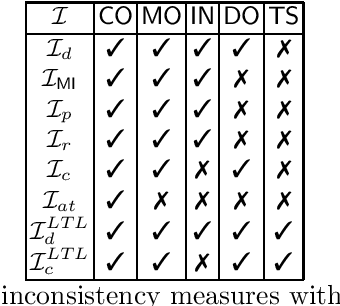

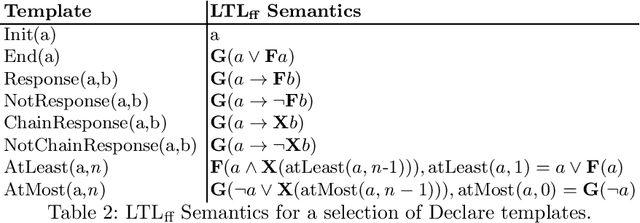
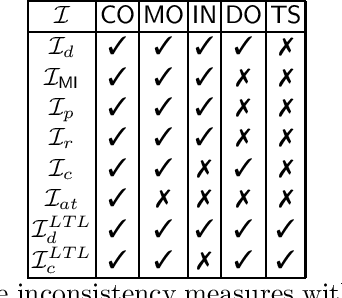
Abstract:We address the problem of measuring inconsistency in declarative process specifications, with an emphasis on linear temporal logic on fixed traces (LTLff). As we will show, existing inconsistency measures for classical logic cannot provide a meaningful assessment of inconsistency in LTL in general, as they cannot adequately handle the temporal operators. We therefore propose a novel paraconsistent semantics as a framework for inconsistency measurement. We then present two new inconsistency measures based on these semantics and show that they satisfy important desirable properties. We show how these measures can be applied to declarative process models and investigate the computational complexity of the introduced approach.
Ontology-Based Process Modelling -- Will we live to see it?
Jul 12, 2021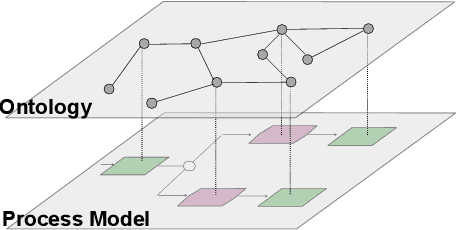
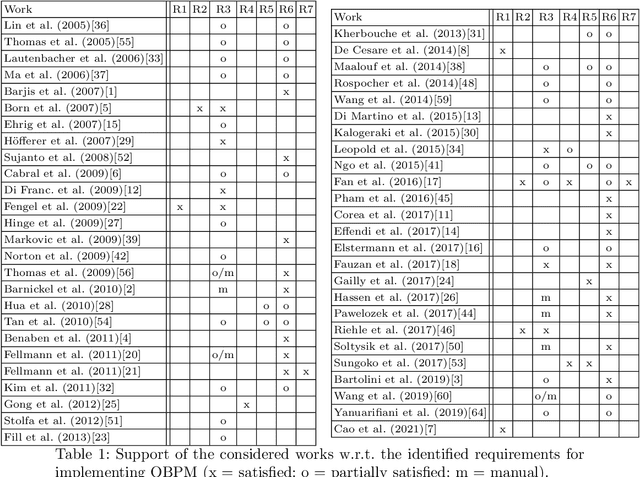

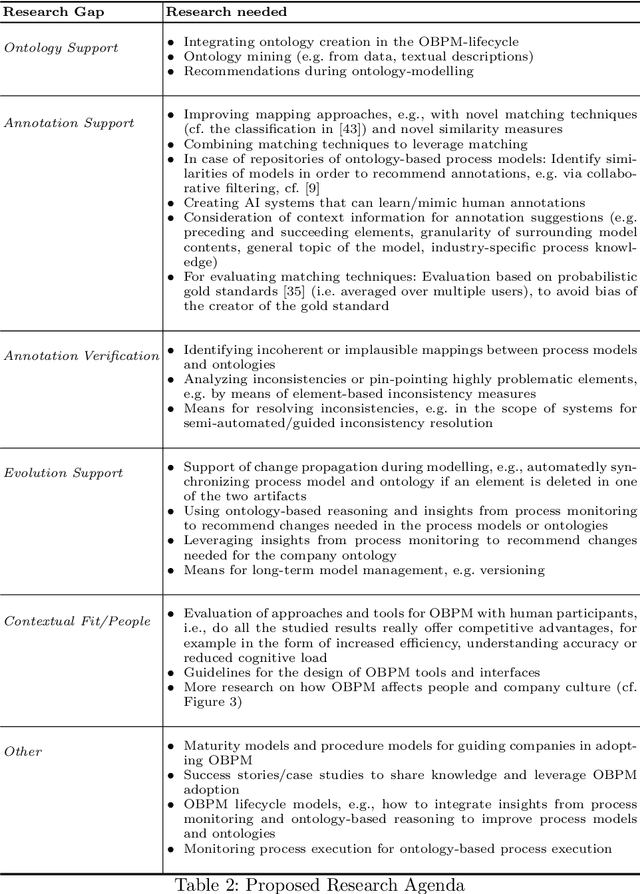
Abstract:In theory, ontology-based process modelling (OBPM) bares great potential to extend business process management. Many works have studied OBPM and are clear on the potential amenities, such as eliminating ambiguities or enabling advanced reasoning over company processes. However, despite this approval in academia, a widespread industry adoption is still nowhere to be seen. This can be mainly attributed to the fact, that it still requires high amounts of manual labour to initially create ontologies and annotations to process models. As long as these problems are not addressed, implementing OBPM seems unfeasible in practice. In this work, we therefore identify requirements needed for a successful implementation of OBPM and assess the current state of research w.r.t. these requirements. Our results indicate that the research progress for means to facilitate OBPM are still alarmingly low and there needs to be urgent work on extending existing approaches.
Measuring Inconsistency over Sequences of Business Rule Cases
Mar 01, 2021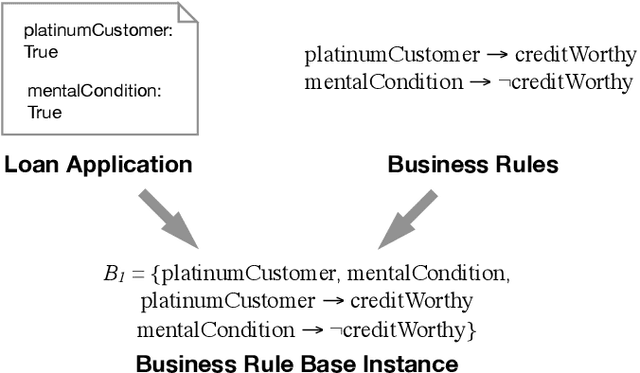

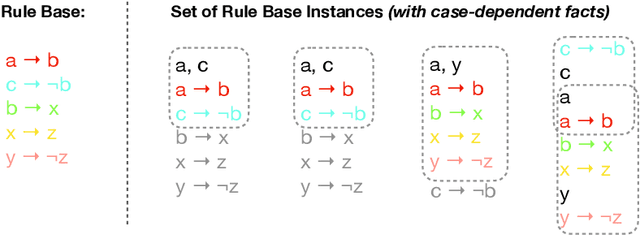

Abstract:In this report, we investigate (element-based) inconsistency measures for multisets of business rule bases. Currently, related works allow to assess individual rule bases, however, as companies might encounter thousands of such instances daily, studying not only individual rule bases separately, but rather also their interrelations becomes necessary, especially in regard to determining suitable re-modelling strategies. We therefore present an approach to induce multiset-measures from arbitrary (traditional) inconsistency measures, propose new rationality postulates for a multiset use-case, and investigate the complexity of various aspects regarding multi-rule base inconsistency measurement.
Towards Inconsistency Measurement in Business Rule Bases
Nov 19, 2019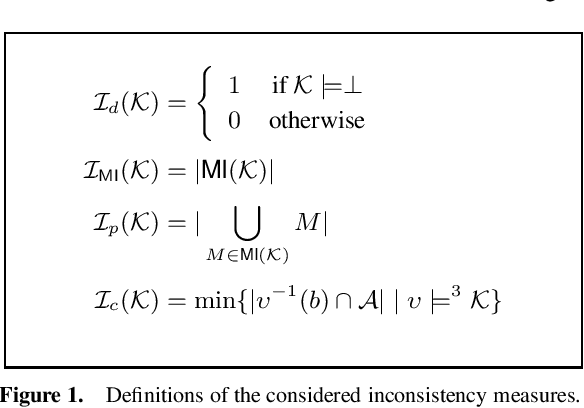
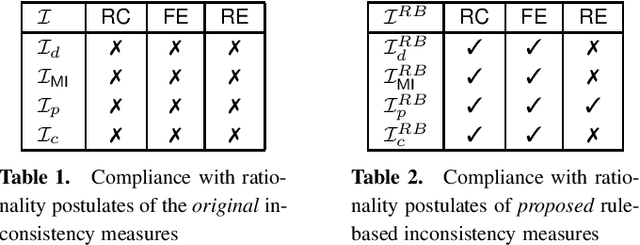
Abstract:We investigate the application of inconsistency measures to the problem of analysing business rule bases. Due to some intricacies of the domain of business rule bases, a straightforward application is not feasible. We therefore develop some new rationality postulates for this setting as well as adapt and modify existing inconsistency measures. We further adapt the notion of inconsistency values (or culpability measures) for this setting and give a comprehensive feasibility study.
 Add to Chrome
Add to Chrome Add to Firefox
Add to Firefox Add to Edge
Add to Edge